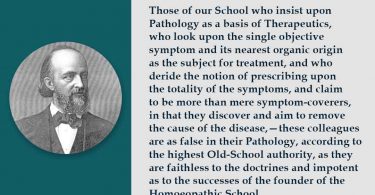In the ever-evolving landscape of healthcare, the integration of patient feedback has become paramount in enhancing the quality of services provided. Understanding the patient’s perspective, needs, and concerns plays a pivotal role in shaping a healthcare system that is not only efficient but also patient-centric.
The Significance of Patient Feedback
Patient feedback serves as a vital tool for healthcare providers to gauge the effectiveness of their services. It provides insights into areas that require improvement, helping institutions tailor their offerings to meet the evolving needs of their clientele. The feedback loop establishes a direct line of communication between healthcare providers and patients, fostering a sense of transparency and accountability.
Enhancing Service Quality
One of the primary advantages of incorporating patient feedback is the continuous improvement it brings to service quality. Actively listening to the experiences and opinions of patients enables healthcare providers to identify bottlenecks, streamline processes, and implement changes that positively impact overall service delivery.
Building Trust and Patient Satisfaction
Trust forms the foundation of a thriving doctor-patient relationship. Patient feedback plays a dual role by pinpointing areas for enhancement and actively contributing to the cultivation of trust. When patients perceive that their voices are acknowledged and witness concrete improvements based on their input, it nurtures a feeling of contentment and instills confidence in the healthcare system.
Methods of Collecting Patient Feedback
To harness the benefits of patient feedback, healthcare providers employ various methods, each designed to capture valuable insights and promote continuous improvement.
Virtual Healthcare Assistants
Virtual Healthcare Assistants can be an effective method for streamlining feedback collection. By automating certain aspects, these assistants allow staff to concentrate on direct patient care, saving time and reducing costs.
Surveys and Questionnaires
Traditional yet effective, surveys and questionnaires provide a structured way to gather patient opinions. Whether administered digitally or on paper, these tools allow healthcare providers to collect specific feedback on various aspects of their services.
Patient Interviews
Conducting one-on-one interviews with patients offers a more in-depth understanding of their experiences. This qualitative approach enables healthcare providers to delve into individual stories, uncovering nuanced feedback that may not emerge in broader surveys.
Social Media and Online Platforms
In the digital age, social media and online platforms provide an avenue for patients to share their experiences openly. Monitoring these channels allows healthcare providers to capture real-time feedback and engage with patients directly.
The Impact of Comprehensive Feedback Collection
The utilization of diverse methods for collecting patient feedback creates a comprehensive understanding of the healthcare landscape. It allows providers to analyze data from multiple perspectives, ensuring a holistic approach to service improvement.
Identifying Systemic Issues
Comprehensive feedback collection helps in identifying systemic issues within healthcare organizations. Patterns and trends that may go unnoticed in individual feedback instances become apparent when analyzing a larger dataset, enabling proactive solutions to be implemented.
Fostering Continuous Improvement
The continuous cycle of collecting, analyzing, and implementing feedback fosters a culture of continuous improvement within healthcare organizations. This commitment to evolution ensures that services are always adapting to meet the dynamic needs of patients.
Conclusion
In conclusion, the role of patient feedback in improving healthcare services cannot be overstated. It is the compass that guides healthcare providers toward excellence, enabling them to adapt to the ever-changing landscape of patient needs. Employing diverse methods for collecting feedback ensures a comprehensive understanding of patient experiences, facilitating the delivery of high-quality, patient-centric care.



